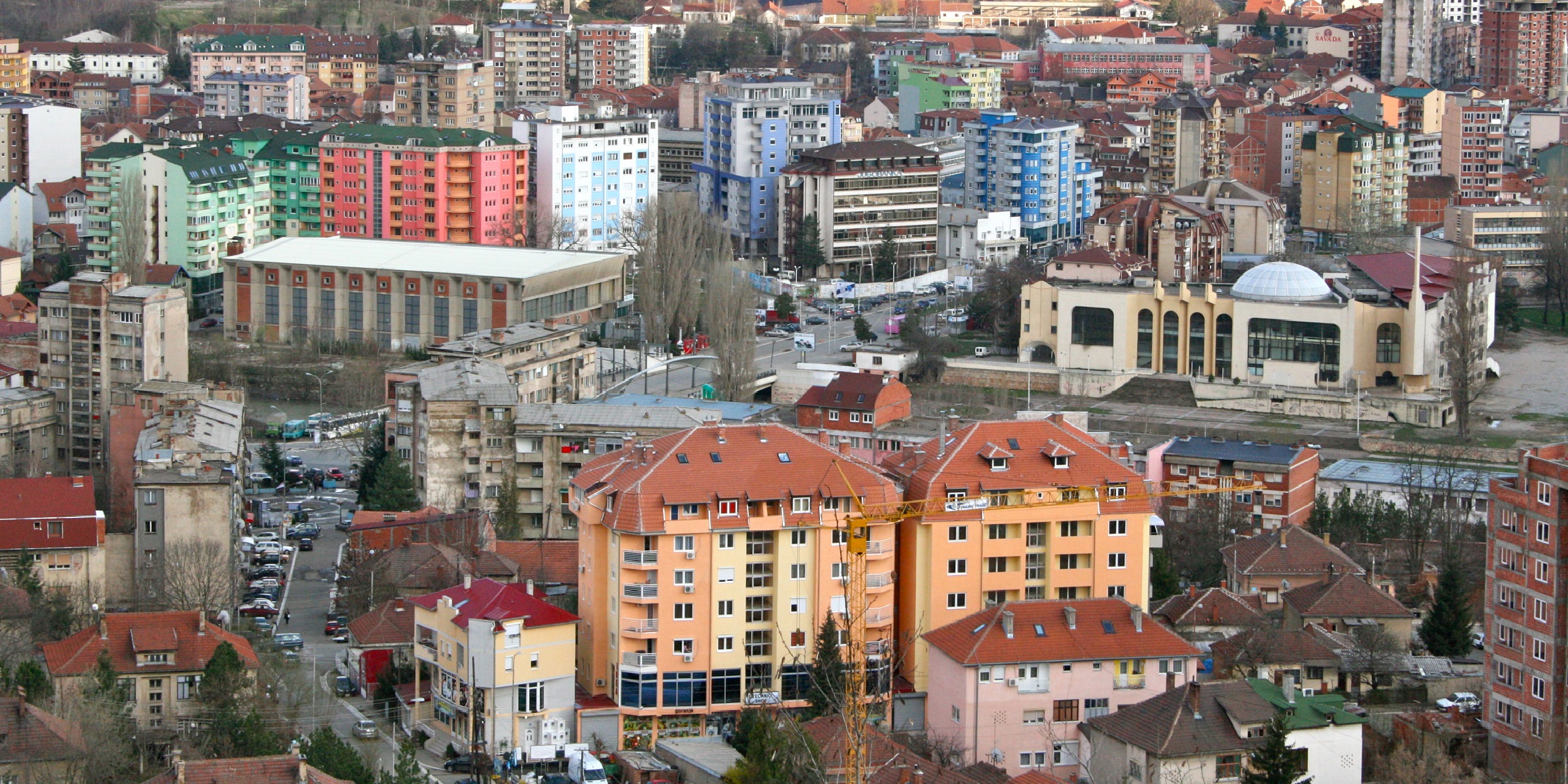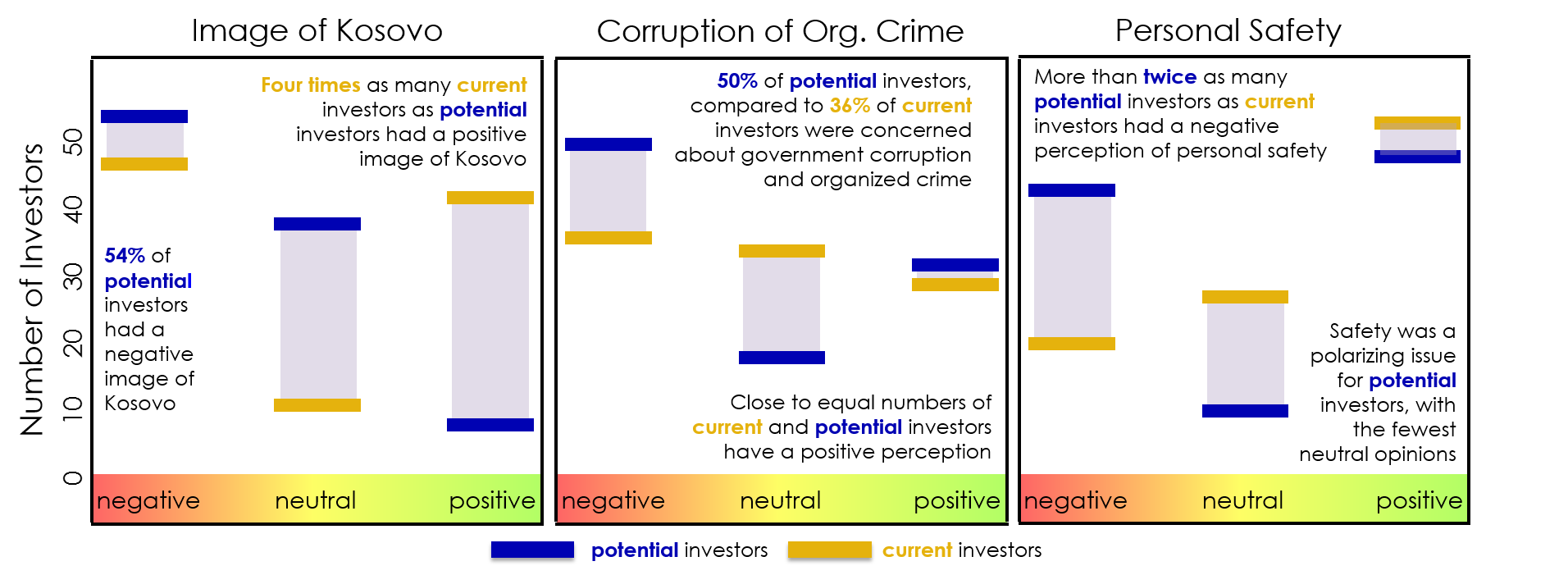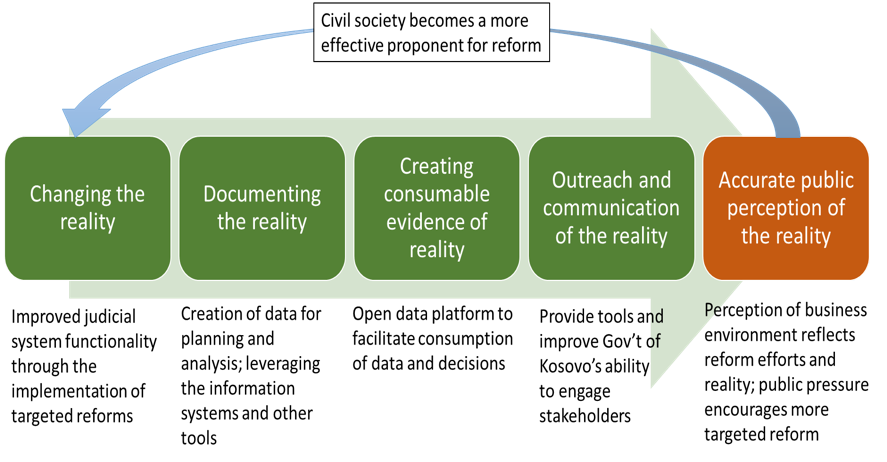
Evidence Insight
Policy takeaways from recent studies
Policy Question: How can the Government of Kosovo change negative public perceptions of governance that persist in Kosovo and around the world?Key Results:
In September 2017, MCC and the Government of the Republic of Kosovo signed a $49 million threshold program with an objective of improving transparency and accountability, and supporting government efforts to lower energy costs for businesses and households. Since gaining independence in 2008, Kosovo has improved its public administration and economic growth, but the country still faces high levels of poverty and negative perceptions of governance. Concerns about the effectiveness of, and corruption within, the government continue to affect current and potential investors, complicating Kosovo’s path towards increased economic growth.
MCC and Kosovo’s Transparent and Accountable Governance Project aims to facilitate data-driven decision-making by promoting the public availability and analytical use of data across civil society and the government. The ultimate goal of this project is to rehabilitate the current negative perceptions of the government of Kosovo by establishing an accurate public perception that will promote public trust and encourage future investments.
Perception vs Reality: Kosovo’s Business Environment

Source: IFC - Investors’ Perceptions Of Kosovo’s Business Environment Survey with Current and Potential Investors (2014)
Potential investors perceive Kosovo’s business environment to be generally more negative than current investors do.
For all three areas of interest, the Threshold project plans to improve upon the data collection and subsequent dissemination to the public. However, it’s important to note that perceptions of corruption and distrust are particularly high within the judiciary system. To address such perceptions, this project will specifically implement an electronic case management information system for the courts and will assist the judiciary in maintaining and reporting on accurate information.
How does public use of data affect perception?
The role of data in transforming public perception in these three sectors

The Kosovo Threshold Program is focused on creating evidence and using it to engage the public.
Evaluation Pipeline
- Evaluation Launched
- Mozambique Urban Water (Performance)
- Namibia Improving General Education and Access to Textbooks (Performance)
- Design Finalized
- Benin II Electricity Generation and Distribution (Impact)
- Burkina Faso Diversified Agriculture and Water Management (Multiple)
- Cabo Verde II Water Sanitation and Hygiene (Performance)
- Tanzania Transport Sector (Performance)
- Zambia Water Sanitation and Drainage Infrastructure (Multiple)
- Ongoing
- 92
- Final Posted
- Ghana I Financial Services (Impact)
- Ghana I Agriculture – Irrigation (Performance)
- Ghana I Agriculture - Post-Harvest (Performance)
Results Brief
Evaluation Lessons: A Vision for Better Monitoring
MCC is undertaking a major push to generate and use better monitoring data, both during project implementation and after the project has concluded. Recent learning from MCC’s Water Sector Project in Tanzania offers an instructive example of why.The Water Sector Project had two major activities – the Lower Ruvu Plant Expansion and the Morogoro Water Supply Activities. In the Lower Ruvu Plant expansion, the project benefits all hinged on the Government of Tanzania building a new water main to bring a higher volume of water to customers in Dar es Salaam. Completion of this transmission main was delayed by years. Although the MCC interventions in Dar es Salaam were completed in April 2015, the benefits from these investments could not be realized until the Government of Tanzania funded the new transmission main. The transmission main was ultimately completed in March 2016. Because of the long timelines needed for proper evaluation planning, midline data collection took place in mid-2015, before the transmission main was complete. Midline analysis in Dar es Salaam then became a second baseline analysis rather than the necessary measurement of short term results. Accurate knowledge of water flow through the system, obtained through better monitoring, would have informed the timing and allowed for execution of the evaluation at the correct checkpoint.
In Morogoro, MCC should have worked to ensure that MCA-Tanzania employed consistent monitoring of water supply increases to better understand how, and if, water was being supplied to the intended beneficiaries, rather than relying exclusively on information obtained from household surveys. The water utility in Morogoro intentionally began scheduled rationing in the system for equity reasons. Rather than some households getting 24/7 access to water and others getting no water, the utility attempted to turn water on in the system at different times of day so everyone had access to water at some point during the day. This allowed wealthier households to store water and provided previously waterless poorer households with access. If the utility’s decisions and methodology for employing water rations ahead of the household survey launch were better understood, MCC’s independent evaluators would have been able to better allocate evaluation resources for maximum informational access and impact.
Making use of the lessons learned, particularly in network systems’ projects like roads, water, and electricity, MCC is now working with our country partners to pilot more robust monitoring. In particular, MCC is working with MCAs to assist them to better measure high frequency outputs using newer and cheaper technologies such as cell phones, geospatial data, satellite imagery, the internet of things, and machine learning. We have started pursuing partnerships on a variety of fronts. Reach out to us here if you’re interested in partnering on better monitoring data, and be on the lookout for future Statistically Speaking editions as we profile these partnerships, and their impacts on our evaluation capabilities.

